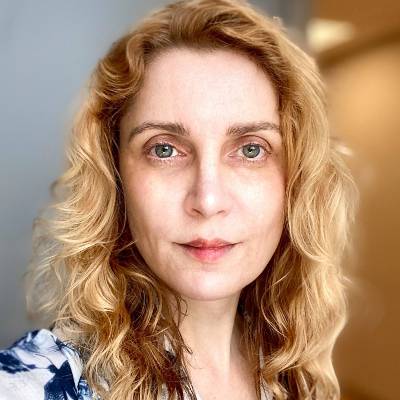About the Author:

E. V. Svetova was born in Moscow when it was the capital of a now extinct empire, and she had a chance to experience both the security and the subjugation of the totalitarian state. In retrospect, it was a winning combination of a happy childhood and a subversive youth. When the country she knew disintegrated like planet Krypton in front of her eyes, the shockwave of that explosion blew her across the world. She has landed on the island of Manhattan and has considered herself a New Yorker ever since. These days, she lives at the edge of the last natural forest on the island with her artist husband, sharing their old apartment with an ever-expanding library and a spoiled English bulldog. Her creative nonfiction was published in a few magazines; her novels Print In The Snow and Over The Hills Of Green have won multiple literary awards.




